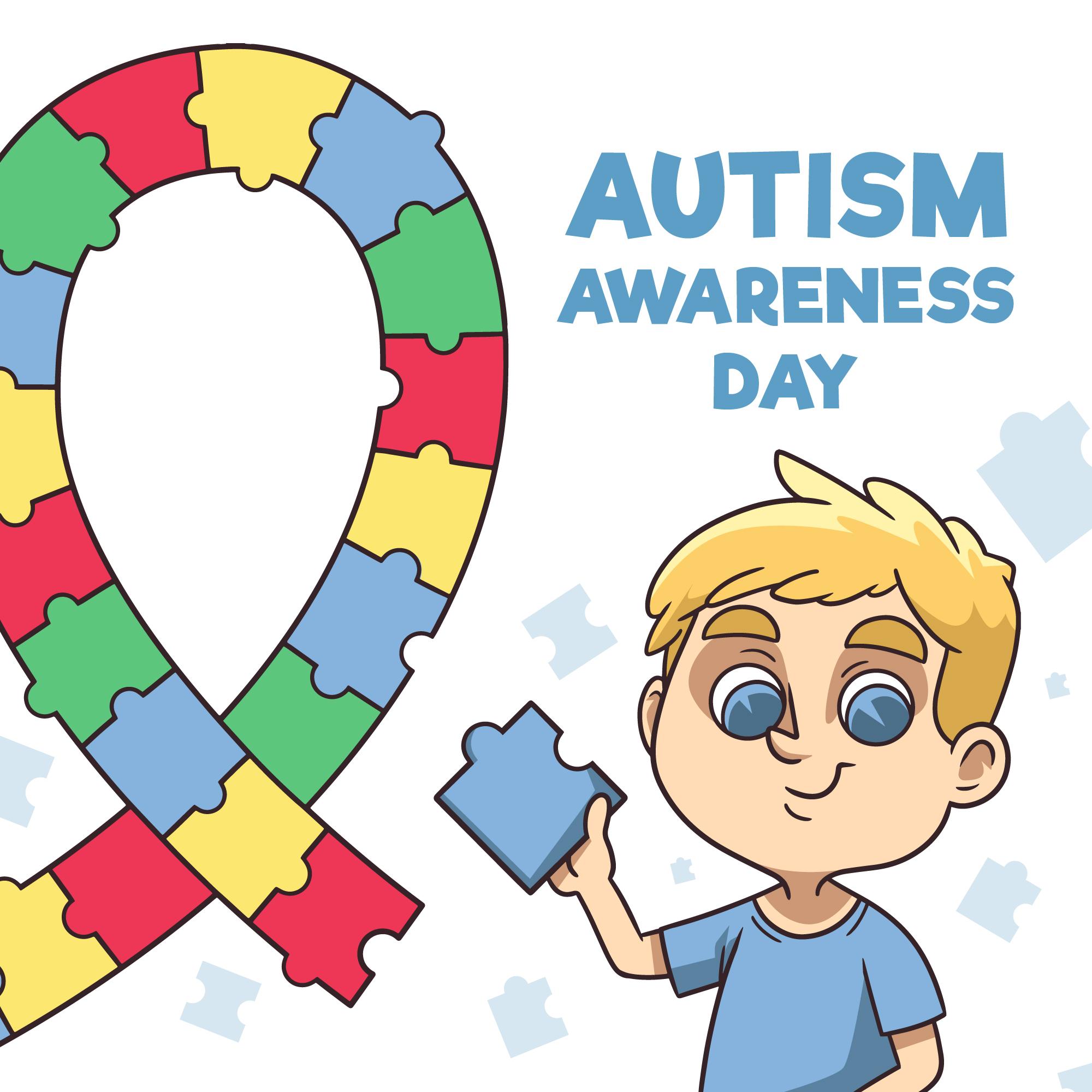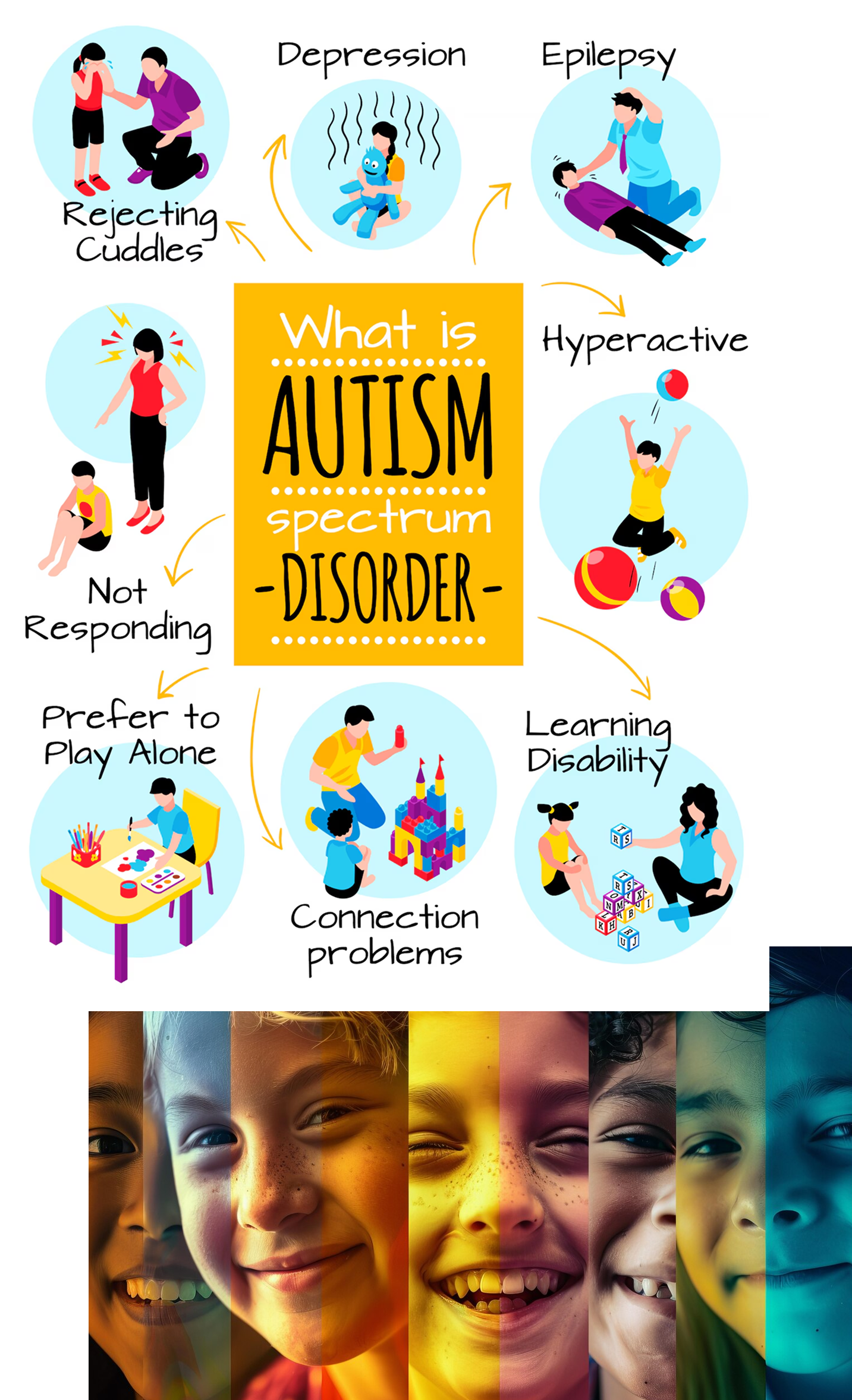
What Is Asperger’s Syndrome?
Asperger’s syndrome or Asperger’s is a high functioning type of autism spectrum disorder (ASD). It is a developmental disorder that was originally named after Hans Asperger in the 1940s. People with Asperger’s Syndrome typically have average to above-average intelligence but struggle in social interactions, emotional communication, and interpreting facial expressions and body language. They also tend to adhere to a narrow set of interests and specific routines.
This form of ASD does not usually involve speech delays or intellectual disabilities but its symptoms can greatly affect daily life, particularly in social and professional environments. Amidst these challenges, many people with Asperger’s excel in areas of their deep interests, typically showing more focus and attention than others.
Fortunately, there are medically validated techniques available that can help manage aspergers symptoms and allow people with this condition to live a happy and fulfilling life.
Asperger's Symptoms
Although Asperger’s symptoms vary from one person to another, the similarities can be seen in the way individuals behave and communicate during social interactions. People with this syndrome may:
- Find difficulty understanding social cues, such as tone of voice, facial expressions, and body language
- Struggle with small talk and casual conversations
- Unable to form and maintain friendships and relationships
- Engage in one-sided conversations that are based on their interests and topic
- Unable to comprehend sarcasm, humor, or implied meanings that other people do
- Use limited and repetitive gestures and facial expressions when speaking
- Move or walk in a certain manner
- Have a formal or unusual speech pattern which sometimes sounds robotic
- Prefer and follow structured routines
- Find it difficult to adapt to change and new routines
- Develop intense interests in specific topics, often becoming highly knowledgeable in niche subjects
- Experience sensory sensitivities, such as heightened reactions to sounds, lights, and noises
- Have aversions to certain fabrics, food textures, or strong scents
- Do not have emotional regulation
- Find it difficult to sympathize with others’ emotions or perspectives
Asperger’s syndrome in adults is generally recognized through these symptoms but these can appear differently compared to children. However, with the right support, therapy, and self-awareness, this syndrome can be managed.

Asperger’s Syndrome Treatment
There’s specifically no cure for asperger’s but different treatments and therapies can help people with this condition manage symptoms, improve social interactions, and improve the overall quality of their daily life. The goal behind these treatments is to support personal development, communication skills, and emotional regulation. Janneta Bohlander and Associates usually recommend and follow the below given approaches for this syndrome treatment.

Behavioral and Social Therapy
Cognitive Behavioral Therapy (CBT): We help people recognize and manage emotions and behaviors through coping strategies and methods involving cognitive restructuring of their thoughts.
Social Skills Training: We guide people to engage in social conversations, empathize with people and understand social cues. This works by providing them with training and resources to build up their skills and confidence.
Speech and Language Therapy: We teach them to understand figurative language, tone of voice, and nonverbal communication through intuitive seminars and counselling sessions.

Sensory Integration Therapy
People with asperger’s experience sensory sensitivities that can be triggering and affect their ability to remain unbothered. So, we work with you by
- Identifying triggers such as bright lights, loud noises, or certain textures
- Introducing coping strategies like noise-canceling headphones or sensory-friendly spaces
- Using exposure techniques to gradually reduce hypersensitivity
- Providing personalized sensory diets including specific activities or tools to help regulate sensory triggers

Structured Routines and Supportive Environments
Many people with this syndrome find comfort in structured and predictable environments. Janneta Bohlander & Associates helps individuals establish routines that provide stability and reduce anxiety. We help them with
- Providing comfortable and non-judgemental space for sessions and counselling
- Develop clear schedules and task lists to help with time management and daily organization
- Encourage visual aids or reminders to assist with transitions and expectations
- Step-by-step guidance to easily adapt to new situations or unexpected changes

Medication
Although no medication specifically targets Asperger’s Syndrome, few can help manage co-existing conditions. Generally these medications include
- Selective Serotonin Reuptake Inhibitors (SSRIs) to reduce anxiety and depression
- Stimulants to cope up with focus and attention issues
- Antipsychotics for mood regulation
- Melatonin Supplements for a better sleep routine
- Beta-blockers to manage social anxiety and reduce physical symptoms like rapid heartbeat or trembling in stressful situations

Self-Care and Lifestyle Changes
Asperger syndrome self care typically involves:
- Engaging in regular physical activity to reduce stress
- Practicing mindfulness and relaxation techniques
- Pursuing structured hobbies that align with their interests
- Following a balanced diet to support cognitive function
- Maintaining a sleep routine to enhance emotional regulation
- Taking follow up courses and counselling sessions to build long-term habits

Support Groups and Counseling
Asperger’s Syndrome is found in approximately 1 out of 200 people, which makes it more common than many recognize. With our support and family counselling sessions, we help people overcome the fear of being judged and isolated.

What Is the Difference Between Autism and Asperger’s Syndrome?
When it comes to the discussion of asperger’s vs autism, awareness is essential because these both fall under the autism spectrum disorder umbrella.. Back in the day, asperger’s was classified as a separate disorder, but in 2013 and later on, it was incorporated into Autism spectrum disorder (ASD) under the DSM-5 classification.
Autism, like Aspergers is a neurodevelopmental disorder that impacts communication, social interaction, and behavior. There are various symptoms associated with this condition ranging from mild to severe normally treated with therapies and medications.
Though Asperger’s is a subset of ASD, it varies in several aspects:
- Individuals with asperger’s usually do not have delayed speech, while individuals with autism can have extreme difficulties in acquiring verbal skills.
- Most individuals with Asperger’s are of average or above-average intelligence, whereas autism may come with intellectual disability or exceptional skills usually in recognizing patterns, music, or memory.
- Both conditions have social interaction problems, but individuals with asperger’s have fewer problems with simple communication and might want friendships and relationships but struggle to keep them due to the lesser understanding of other people’s emotions.
- Both asperger and autism share repetitive behavior and intense interests, individuals with asperger’s tend to become specialists in specific areas without severe interference in daily life.
Asperger’s is now considered a milder form of autism rather than a separate diagnosis. But with our autism awareness month celebrated in April dedicated to spreading knowledge about ASD, we provide insights about diagnosing Asperger’s syndrome and treating it early with medically known therapies and medications.
What Is the Difference Between Autism and Asperger’s Syndrome?
We are experts in mental health care at Janneta Bohlander & Associates, providing individualized treatment plans for people with Asperger’s Syndrome and those on the autism spectrum. Our services are centered on empowering individuals to manage social interactions, regulate sensory sensitivities, and create meaningful lives.
Schedule a consultation with us today and begin your journey to a more empowered and confident life.
Contact us now
Asperger's Syndrome:
Asperger’s syndrome, also known as Asperger disorder or simply Asperger’s, is a type of pervasive developmental disorder which is classified as a part of the autism spectrum. The main distinguishing features of Asperger’s are difficulties in social interaction and nonverbal communication, alongside restricted and repetitive patterns of behavior and interests.
The main difference between Asperger’s syndrome and autism lies in language development. Individuals with Asperger’s syndrome, unlike those with autism, typically do not have a significant delay in language development. However, both share difficulties with social interactions and communication, and exhibit repetitive behaviors or narrow interests. It’sworth noting that as of the DSM-5, Asperger’s syndrome is now included within the diagnosis of Autism Spectrum Disorder (ASD).
Yes, Asperger’s syndrome is considered a part of the broader category of Autism Spectrum Disorder (ASD) as per the Diagnostic and Statistical Manual of Mental Disorders 5th Edition (DSM-5).
The exact cause of Asperger’s syndrome is not known. However, it’s likely a combination of genetic and environmental factors. There is no evidence to support the idea that Asperger’s is caused by a person’s upbringing or their social or physical environment.

